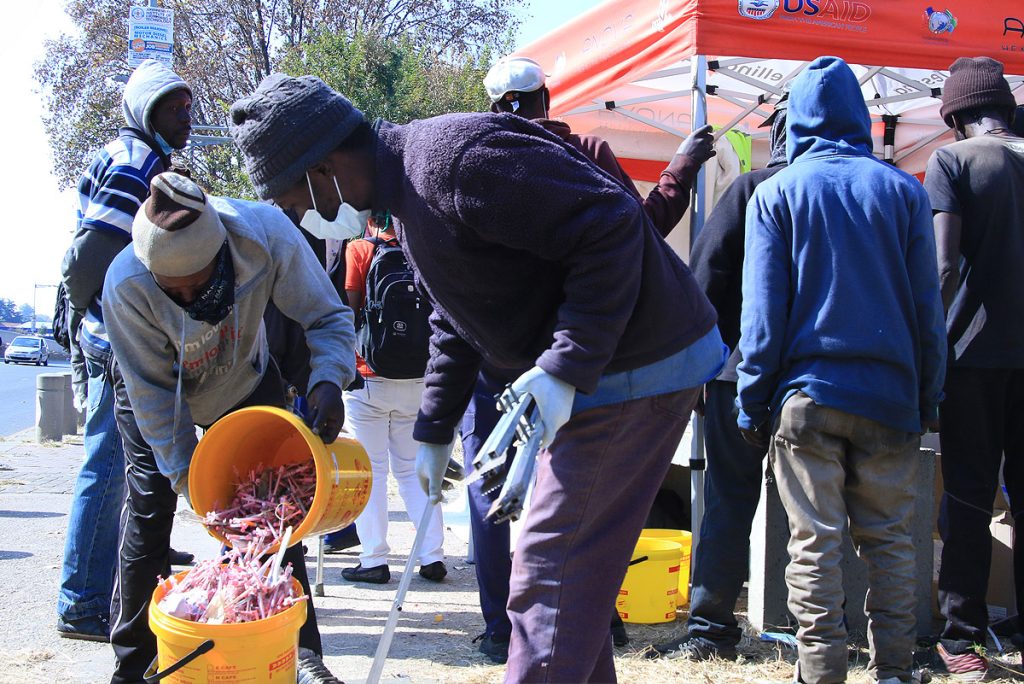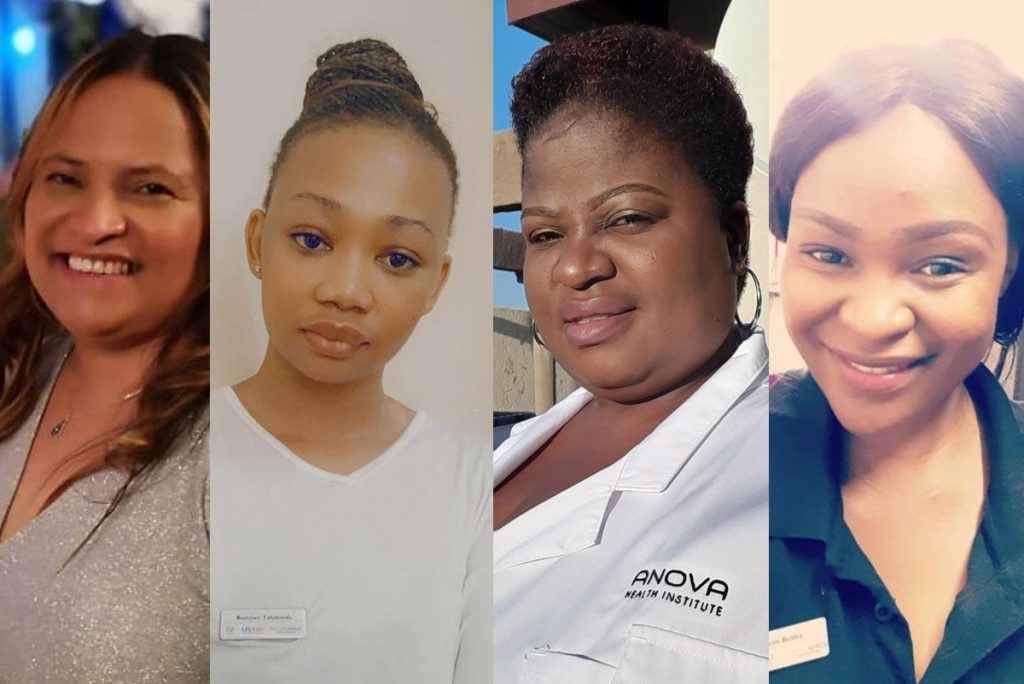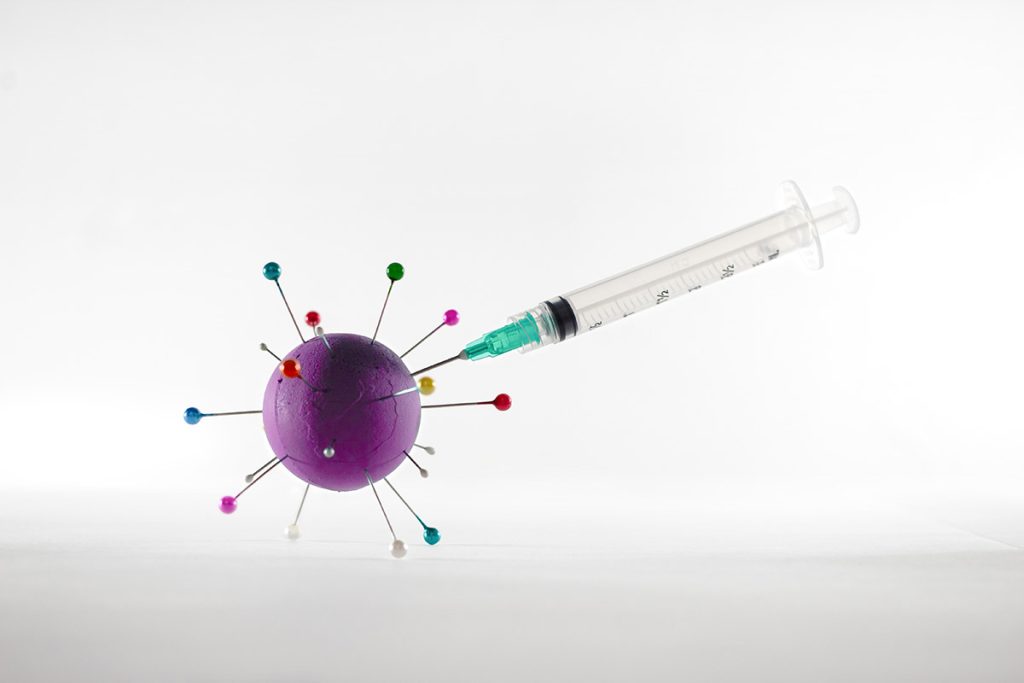United States, Western Cape Department of Health sign 5-year Government-toGovernment agreement focused on HIV, TB, and COVID-19
The U.S. government, through USAID, and the Western Cape Department of Health on Tuesday, November 9, 2021, signed a historic Government-to-Government (G2G) agreement to implement initiatives specifically focused on driving towards HIV, TB, and COVID-19 epidemic control. The signing ceremony at the District Six Community Day Centre in Cape Town included Western Cape Premier, Alan Winde, Dr. Nomafrench Mbombo, Western Cape Minister of Health, USAID Regional Mission Director, Andy Karas, and Acting U.S. Consul General in Cape Town, Will Stevens. \”The U.S. government has a long history of collaborating with the Western Cape government and we are very proud to enter into this partnership that is, at its core, focused on strengthening the local health system and ultimately saving lives. This is one more example of the incredible things that our USAID team is able to accomplish here in the Western Cape,\” said Acting U.S. Consul General in Cape Town, Will Stevens. The U.S. government, through USAID, has historically supported Non-profit Organizations (NPOs) that work side-by-side with the Western Cape Department of Health staff to serve clients infected with HIV, TB, and COVID-19. The $10 million, five-year G2G award represents the first U.S. government provincial-level G2G award in South Africa for the implementation of HIV, TB, and COVID-19 programs aimed at epidemic control. The Premier of the Western Cape, Alan Winde, said: “I welcome the G2G agreement between the US and Western Cape Governments which will assist us in saving many lives in our province. Ensuring the best possible healthcare to our people remains a top priority for my government, and we intend to use the lessons learnt from this unprecedented pandemic to beat HIV and TB in the Western Cape. This partnership demonstrates the importance of the strong bilateral relationship between both governments, and I look forward to us strengthening this relationship further.” The first year of the G2G award will help expand convenient options for clients to pick up their chronic medicines and help clients receive health services like consultations virtually through telemedicine. The award will also integrate HIV and TB screening during COVID-19 vaccination drives, and support public health priorities shared by the Western Cape Department of Health, USAID, and PEPFAR. “G2Gs symbolize USAID’s commitment to strengthening local service provision and delivery by working with local governments to implement and sustain activities. This G2G leverages the innovation and entrepreneurial spirit within the Western Cape Department of Health, further supporting the essential work already being done by public servants in the province to respond efficiently and effectively to HIV, COVID-19, and TB,” said USAID Southern Africa Mission Director Andy Karas. Public health facilities across the Western Cape have come under tremendous pressures as a result of the COVID-19 pandemic. While the pandemic strained the local health system, it has also inspired many healthcare innovations. The G2G will allow innovations, such as the recently launched VaccStations and e-lockers for chronic medications, to be fully realized. “We value partnerships, they are essential in ensuring that we achieve our set goals or targets. The COVID-19 crisis has shown us that we need each other, we can’t defeat it on our own. We each have a role to play. I am grateful to the USAID for this generous gesture that will see us implementing initiatives to combat the HIV, TB, and COVID-19 epidemics,” said WC Health HOD/Dr Nomafrench Mbombo, Western Cape Minister of Health. The Western Cape adopted a community-orientated primary care (COPC) approach to its Provincial goals for 2030 and the key strategies for the improvement of district health services. This approach is expected to improve health and save costs. The strategy better links teams at facilities and communities, promotes partnerships between government and non-government organisations, and reorganizes the scope of practice, information systems, community engagements, and change management. The COPC framework serves as the basis for the G2G. Ensuring access to HIV and TB services remains essential, especially in the face of the COVID19 pandemic. U.S. PEPFAR focuses on facilitating client-centered care, making it easier for people to access, start, and stay on lifesaving HIV and TB treatment. These efforts build on decades of life-saving work and U.S. leadership in tackling global health crises. Over the past 60 years, the U.S. Mission to South Africa has saved millions of lives threatened by diseases such as Ebola, HIV/AIDS, tuberculosis, malaria, and now COVID-19.










